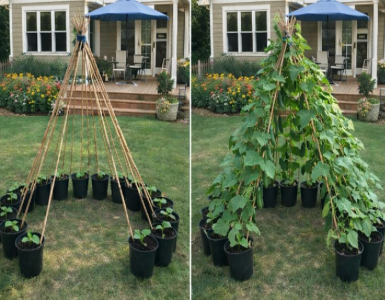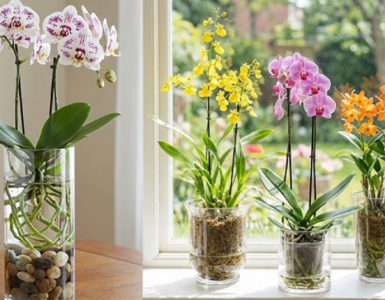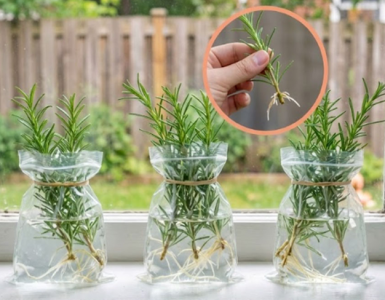Cinnamon is a beloved spice known for its warm, sweet aroma and flavor, but its benefits extend far beyond the kitchen. Gardeners have discovered that cinnamon can be a powerful ally in maintaining healthy, vibrant plants. Sprinkling cinnamon on your garden can yield amazing results, from protecting plants against diseases to deterring pests and promoting root growth. Here’s why you should consider adding cinnamon to your gardening routine.
1.Natural Fungicide
Cinnamon has potent antifungal properties, making it an excellent natural fungicide. It can help prevent and treat fungal diseases such as damping-off disease, which affects seedlings and can cause them to rot before they have a chance to grow. To use cinnamon as a fungicide:
Sprinkle cinnamon powder directly on the soil: After planting seeds or seedlings, lightly dust the soil with cinnamon to protect young plants from fungal infections.
Apply to affected areas: If you notice mold or fungus on plant stems or leaves, sprinkle cinnamon on the affected areas to inhibit further growth.
2.Rooting Agent
Cinnamon can also promote root growth, acting as a natural rooting hormone for plant cuttings. This can be particularly useful when propagating new plants.
Dip the cuttings in cinnamon: Before planting cuttings, dip the cut end into cinnamon powder. This helps stimulate root development and protect the cuttings from rot and disease.
3.Ant Deterrent
Ants can be a nuisance in the garden, often protecting aphids and other pests that harm plants. Cinnamon acts as a natural deterrent for ants.
Create a barrier: Sprinkle cinnamon in a line around your garden beds or around the base of plants to create a barrier that ants will avoid crossing.
4.Animal Repellent
Certain animals, such as rabbits and squirrels, can wreak havoc in your garden. Cinnamon’s strong scent can help keep these critters at bay.
Sprinkle cinnamon around the perimeter: Spread cinnamon around the edges of your garden and in areas where you’ve noticed animal activity to deter them from entering.
5.Soil Health
Cinnamon can improve soil health by acting as an organic amendment that helps reduce the spread of harmful bacteria and fungi.
Mix into the soil: Incorporate a small amount of cinnamon into your garden soil to create a healthier growing environment for your plants.
6.Healing Agent
If you accidentally damage a plant or if a plant suffers from an injury, cinnamon can help with the healing process.
Apply to wounds: Sprinkle cinnamon on plant wounds to help them heal and prevent infections. This is particularly useful after pruning.
How to Use Cinnamon in Your Garden
Sprinkle cinnamon powder directly onto the soil and over seedlings to prevent damping-off disease.
Dip plant cuttings in cinnamon before planting to encourage root growth.
Create barriers around garden beds and plants to deter ants and small animals.
Apply cinnamon to plant wounds after pruning or accidental damage to promote healing.
Regular application is crucial for maintaining the benefits of cinnamon in your garden. Reapply after heavy rain or watering to ensure continuous protection and benefits.
Cinnamon is a versatile, natural tool that can significantly benefit your garden. Its antifungal properties, ability to promote root growth, and effectiveness as a pest deterrent make it an invaluable addition to any gardener’s toolkit. By incorporating cinnamon into your gardening routine, you’ll be amazed at the positive impact it can have on your plants’ health and vitality. So next time you reach for cinnamon in the kitchen, consider taking it out to the garden as well.






Add comment